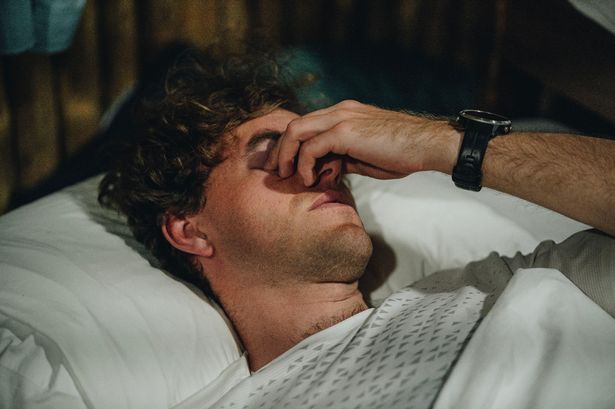Health
NHS Warns of Night Sweats: When to Seek Medical Advice

The NHS has issued a warning regarding night sweats, advising individuals who frequently experience this symptom to seek medical attention. While night sweats can often result from benign factors, such as room temperature or bedding, they may also indicate more serious health conditions.
In an alert shared on social media platform X, the NHS highlighted the importance of monitoring night sweats. It stated, “It’s common to sweat during the night if your room or your bedding is making you too hot.” However, it emphasized that if an individual regularly wakes up with their sheets soaking wet, a consultation with a general practitioner (GP) is warranted.
Understanding Night Sweats
Night sweats are characterized by excessive perspiration that leaves nightclothes and bedding drenched, even in a cool sleeping environment. This condition can be triggered by various factors, including hormonal changes, infections, and certain medications. In some cases, the cause remains unknown.
The NHS further explained that common triggers include:
– Room temperature
– Stress or anxiety
– Hormonal fluctuations, particularly during menopause
– Infections, such as tuberculosis
While many instances of night sweats are harmless, the NHS cautions that they may be a symptom of serious medical conditions. Notably, Cancer Research UK identifies “very heavy night sweats” as a general sign of cancer. Certain cancers, including leukaemia, can lead to increased perspiration. According to Leukaemia Care, approximately 30 percent of patients with leukaemia report experiencing night sweats.
When to Consult a Doctor
Individuals who find themselves waking up drenched in sweat should consider discussing their symptoms with a GP. The NHS points out that while occasional night sweats may not be alarming, persistent episodes could warrant further investigation.
If night sweats are accompanied by other concerning symptoms such as unexplained weight loss, fever, or fatigue, it is crucial to seek medical advice promptly.
The guidance from the NHS serves as a reminder for the public to remain vigilant about their health and to recognize when symptoms may indicate a need for professional evaluation. While night sweats can often be attributed to non-threatening causes, the potential connection to serious conditions cannot be overlooked.
-

 Entertainment2 months ago
Entertainment2 months agoIconic 90s TV Show House Hits Market for £1.1 Million
-

 Lifestyle4 months ago
Lifestyle4 months agoMilk Bank Urges Mothers to Donate for Premature Babies’ Health
-

 Sports3 months ago
Sports3 months agoAlessia Russo Signs Long-Term Deal with Arsenal Ahead of WSL Season
-

 Lifestyle4 months ago
Lifestyle4 months agoShoppers Flock to Discounted Neck Pillow on Amazon for Travel Comfort
-

 Politics4 months ago
Politics4 months agoMuseums Body Critiques EHRC Proposals on Gender Facilities
-

 Business4 months ago
Business4 months agoTrump Visits Europe: Business, Politics, or Leisure?
-

 Lifestyle4 months ago
Lifestyle4 months agoJapanese Teen Sorato Shimizu Breaks U18 100m Record in 10 Seconds
-

 Politics4 months ago
Politics4 months agoCouple Shares Inspiring Love Story Defying Height Stereotypes
-

 World4 months ago
World4 months agoAnglian Water Raises Concerns Over Proposed AI Data Centre
-

 Sports4 months ago
Sports4 months agoBournemouth Dominates Everton with 3-0 Victory in Premier League Summer Series
-

 World4 months ago
World4 months agoWreckage of Missing Russian Passenger Plane Discovered in Flames
-

 Lifestyle4 months ago
Lifestyle4 months agoShoppers Rave About Roman’s £42 Midi Dress, Calling It ‘Elegant’









